Why Zelensky is the Lincoln of our times
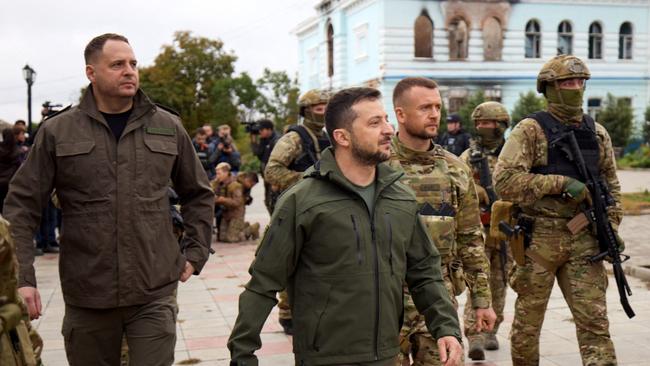
Since he delivered but 115 words, I can repeat them here in full: “Do you still think,” he demanded of President Vladimir Putin and his invaders, “that we (Ukraine and Russia) are ‘one nation’? Do you still think you can scare us, break us, force us to make concessions? Have you really not understood anything? Not understood who we are? What we are for? What we are talking about?”
And then he explained who the Ukrainians are. “Read my lips: Without gas and without you? Without you. Without light and without you? Without you. Without water and without you? Without you. Without food and without you? Without you. Cold, hunger, darkness and thirst are not as frightening and deadly for us as your ‘friendship and brotherhood’. But history will put everything in its place. And we will be with gas, light, water and food … and without you!”
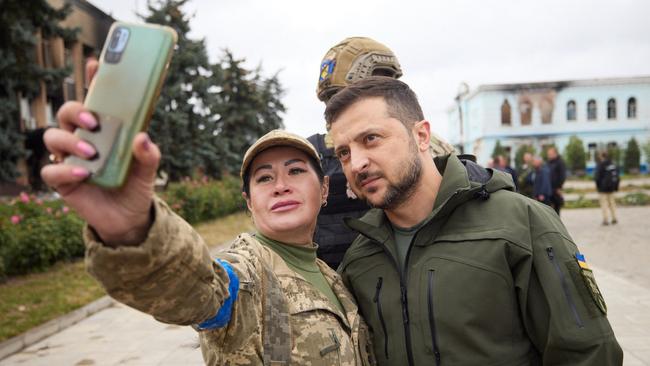
Like former US president Abraham Lincoln’s short speech (only twice as long), and posted on social media rather than spoken, Zelensky’s words came in the wake of a significant victory but long before the outcome of the war is in any way settled. The battle of Gettysburg had been won by the Union in July 1863 and Lincoln’s speech was delivered on the battlefield four months later.
But even in 1864 the costs of the war meant that Lincoln feared electoral defeat at the hands of those who wished to conclude a treaty with the Confederacy. The Address had been an attempt to define the necessity for the struggle, and it endures through the ages.
Of course, Zelensky’s post was not spoken, was not laden with the semi-classical language which Lincoln deployed so memorably. It is much simpler. But just like Lincoln’s speech it defines the issue at hand: whether a nation in the shadow of a mighty and antagonistic power has not just the right, but the will to survive.
It was in every way a counterpoint to the bullying television address by Vladimir Putin last February that gave his justification for trying to extinguish Ukraine’s independence. On February 21, Putin had launched into a long historical ramble, the upshot of which was that his Communist predecessors had made a criminal error in allowing autonomy to Ukraine. He told those Ukrainians ungratefully pulling down statues of Lenin, “You want decommunisation? Very well. We are ready to show what real decommunisation would mean for Ukraine”.
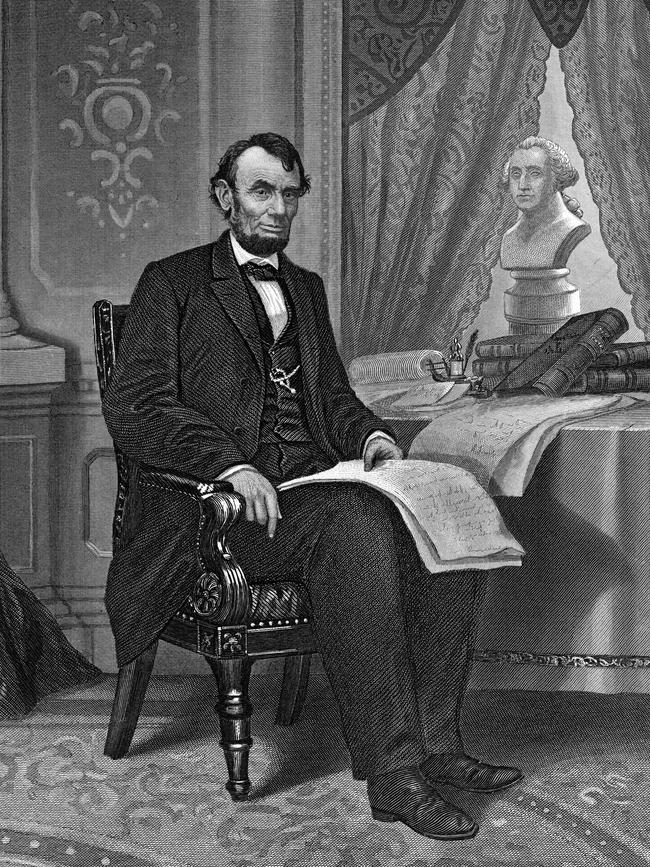
Three days later, as the invasion commenced and the bombing with it, Putin reminded the people of Ukraine that all this was being done on their behalf. Their country was “an inalienable part of our own history, culture and spiritual space”; they were “those dearest to us … relatives, people bound by blood, by family ties”.
Some readers will recognise in this the embrace of the abuser, the touch of the rapist who “loves” you. And this was Zelensky’s point, made in modern poetry. It was particularly apt as this week Putin’s military, defeated for the moment in the northeast, launched attacks against the power and water supplies of Ukrainian cities and towns: “Without power and without you? Without you!”
Formally, Zelensky’s post was for the uncomprehending Russians, and it was also, of course, a reminder to his own citizens – should they need it – of why the sacrifices for freedom were noble and necessary.
But it was uncomfortably relevant to us too, in effect asking whether we were prepared to suffer some hardship for the sake of our own and other’s liberty. We were, after all, also threatened by Putin in his invasion address. “No matter who tries to stand in our way or create threats for our country and our people, they must know that Russia will respond immediately, and the consequences will be such as you have never seen in your entire history. I hope that my words will be heard,” he promised.
For some in the West his words were heard all too clearly. Since before the invasion there have been influential voices in the democratic world doubting whether the costs of supporting Ukraine were worth it. As recently as two weeks ago, in the US, the pro-Republican commentator Tucker Carlson told his large TV audience that sanctions weren’t working and that “by any actual reality-based measure, Vladimir Putin is not losing the war in Ukraine … he is winning the war in Ukraine”. The result was high energy costs and these costs were a much bigger problem than Ukraine’s independence.
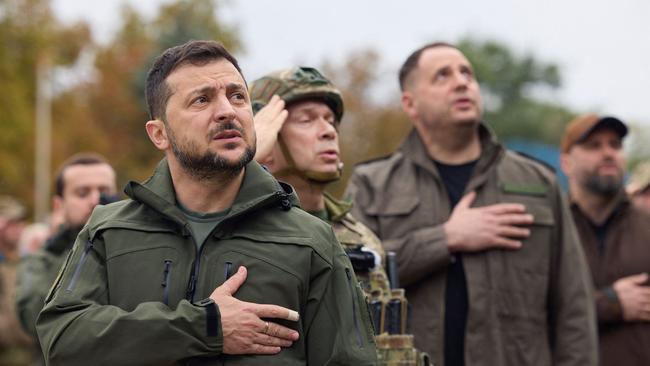
In Europe (though not, thankfully, in Britain, Jeremy Corbyn aside) similar voices can be heard. In Germany back in April a conservative state prime minister called for Ukrainian concessions and 30 intellectuals wrote an open letter to Olaf Scholz arguing against German military support for Kyiv. One reason was the danger of escalation and the other was the “level of destruction and human suffering among the Ukrainian civilian population”. They added: “At one point, even justified resistance against an aggressor is unbearably disproportionate.” A Ukrainian writer countered this condescension: “In my apartment in Kyiv I have books by Alexander Kluge, who is one of my favourite authors, and who, by signing this letter, condemns me, my parents, my apartment with his books, to disappear.”
Last week the NATO secretary-general Jens Stoltenberg warned alliance members of the tough winter ahead. “I understand that many people are frustrated and actually feel the pain with increasing energy prices, the cost of living,” he said. “But we have to remember that the price we pay is measured in money while the price that Ukrainians are paying is measured in lives lost every day.”
On Wednesday, the president of the European Commission, Ursula von der Leyen, told MEPs: “With the necessary courage and the necessary solidarity, Putin will fail and Ukraine and Europe will prevail. This is time for resolve and not for appeasement. We are in for the long haul.”
Without gas and without allowing a victory for bullies and barbarism? Then without gas. This winter, to extend the metaphor, we may need to switch off the lights precisely so the light doesn’t go out.
– The Times

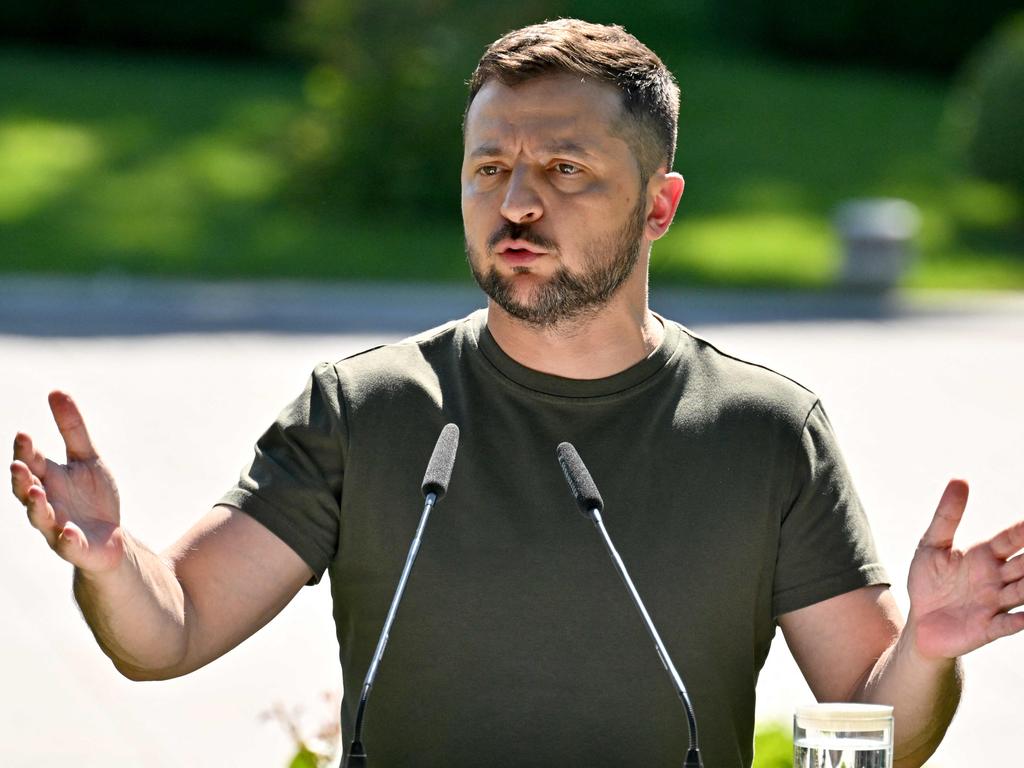



On Sunday, while we in Britain were thinking about other things, the President of Ukraine addressed the Russians. Distracted myself, it took me a day or so to catch up with what Volodymyr Zelensky said as the Ukrainian offensive gained momentum and – almost more important – how he said it. And though you may think I exaggerate, I thought his words were a Gettysburg Address for our times: a poetic, defiant and defining sentiment, which deserves to be repeated and remembered in decades to come.